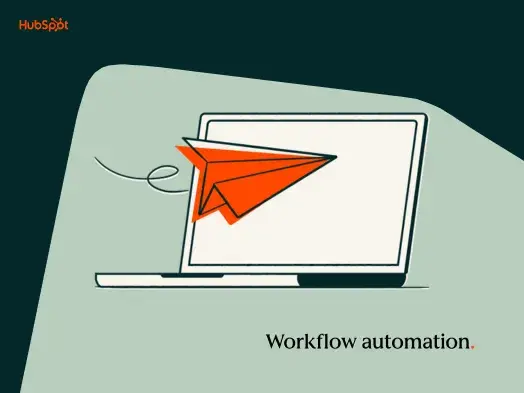What is marketing automation?
Marketing automation refers to any marketing efforts, campaigns, and tasks that are managed, executed, and measured with software versus manually. These efforts and campaigns are typically triggered by actions taken by leads or customers.
Marketing automation has many benefits. It can help save your resources, nurture your leads, and increase your revenue — all at once and with minimal manual effort. Amazing, right?
It’s important to note, however, that marketing automation shouldn’t replace human touch. This is especially true for B2C — unlike B2B, the B2C sales cycle is much shorter and the customer journey much more personalized.
What is B2C marketing automation?
B2C marketing automation encompasses any automated marketing messages and campaigns targeted to individual consumers versus business audiences. This type of marketing automation must be much more personalized and data-driven to best appeal to the individual in his or her specific customer journey.
Both B2C and B2C marketing automation work to send relevant messages, increase efficiency, and drive revenue, but let’s further unpack their differences.
B2B vs. B2C Marketing Automation
B2B marketing automation delivers more mass-oriented content that’s focused on educating and nurturing leads through a pre-established sales funnel. Since there are typically more stakeholders involved in B2B purchases, B2B marketing automation also works to provide action-triggered information that can help influencers educate their decision-makers.
Let’s say a junior social media strategist is searching for a new social media management software for their entire team. They download an ebook on social media strategy from a prominent SaaS company, thus prompting the company’s B2B marketing automation software to send them nurturing emails about building a social media strategy and how to use its tool to do so.
The junior strategist is now equipped to bring this information to his or her director, who will make the final decision about which social media SaaS tool to purchase.

On the other hand, B2C marketing automation typically focuses on highly relevant and personalized marketing messages. B2C marketing automation also targets individuals wherever they are in their individual customer journeys and attempts to deliver customized product or service recommendations based on action triggers and captured data.
For example, one type of B2C marketing automation is cart abandonment email. By tracking shopper behavior and capturing personal information like email addresses, B2C companies set up a marketing automation “rule” to send an email to consumers who leave un-purchased products in their shopping carts.
Typically, abandoned cart emails include the specific products left behind — a dose of personalization that may motivate shoppers to return to the website and complete their individual purchase.
Benefits of B2C Marketing Automation
Marketing automation sure has its perks — for both marketers and their audiences. These marketing automation benefits include:
- Keeping your brand top-of-mind with potential customers
- Allowing your team to send personalized, targeted messages without having to manually track users and repeatedly write content
- Increasing efficiency amongst your marketing team
- Closing the gaps in your marketing analysis by removing human error
- Tracking user data that can be used to better serve up personalized product or service suggestions
- Delighting site visitors, leads, and customers with customized content
Now, let’s discuss some B2C marketing automation tools software tools that can help you reach, engage, and convert your shoppers and customers.
There are countless marketing automation tools on the market. According to our research, the following five are a great fit for B2C marketing automation.
However, when comparing what tool may meet your B2C marketing automation needs, consider 1) how complex each tool is and what onboarding resources are offered, 2) what integrations each tool offers and how they may fit into your current tech stack, and 3) how each tool is priced and how much your marketing automation needs may cost.
1. HubSpot Marketing Hub
Built on the foundation of the free HubSpot CRM, HubSpot Marketing Hub holds a wealth of B2C marketing automation tools that allow you to use your lead’s behavior to personalize emails, content, and outreach at scale. From email to SMS, and even internal automations like lead scoring and CRM updates, HubSpot is easy to get accustomed to and can quickly become your team’s marketing automation best friend.
Onboarding support: HubSpot’s award-winning customer support is available 24/7 through email and chat, as well as over the phone for Professional and Enterprise subscribers. You can also access a knowledge base and various HubSpot Academy courses.
Integrations: HubSpot Marketing Hub integrates with over 500 third-party applications.
Pricing: HubSpot Marketing Hub offers a Free plan as well as multiple subscription options. Note that the marketing automation features are only available for paid subscribers.
2. Mailchimp

Mailchimp is an industry leader in email marketing automation. Use the Mailchimp tool to deliver transactional emails, such as order confirmation emails and other personalized messages. The tool also allows you to build visual customer journeys so you can provide the best possible experience to each customer — or convert your leads and prospects into one.
Onboarding support: Mailchimp has a large library of resources, including guides, tutorials, and case studies. Free users get 30 days of email support, and paid subscribers get unlimited email and chat support.
Integrations: Mailchimp integrates with over 200 third-party applications.
Pricing: Mailchimp offers a Free subscription, but the more in-depth marketing automation tools aren’t available unless you invest in the Essentials subscription or higher.
3. ActiveCampaign

ActiveCampaign is a renowned marketing automation software and was the first to develop the visual automation workflow builder. (You know, the one with the boxes and labels and lines going everywhere — like the one above.) In addition to email, it offers site tracking, lead scoring, attribution, and more.
Onboarding support: ActiveCampaign offers a free demo and a whole slew of resources, such as a blog, developer documentation, and a library of pre-written automations. All subscriptions include data migration and implementation services, and more expensive subscriptions include limited one-on-one training.
Integrations: ActiveCampaign integrates with over 300 third-party applications.
Pricing: ActiveCampaign offers a free trial. From there, you can pay for a Lite subscription at $9 per month or more.
4. AutoPilot

AutoPilot, like others on this list, offers a visual automation workflow builder … but with a twist. It sets itself apart with emojis, stickers, custom notes, and other details that help your team collaborate and, well, have fun building your marketing automation sequences. Although the tool doesn’t offer its own built-in CRM, it is fairly intuitive, easy to use, and offers fantastic reporting features.
Onboarding support: All AutoPilot subscriptions include unlimited emails and access to support. You can purchase an Expert Setup and Training add-on for $1699.
Integrations: AutoPilot integrates with dozens of third-party applications.
Pricing: AutoPilot offers a free trial, after which you can join at as little as $49 per month.
5. Omnisend

Omnisend is a leading marketing automation tool specifically tailored for e-commerce businesses. Not only does it offer dozens of pre-written templates for all e-com automation scenarios, but it also integrates with nearly every possible e-commerce-related tool, including both email and SMS automation software.
Onboarding support: Omnisend offers a library of resources, including an onboarding course. Unfortunately, live support is only offered to paying subscribers.
Integrations: Omnisend integrates with hundreds of third-party applications, although most aren’t available with the Free plan.
Pricing: Omnisend does offer a Free subscription option, although most automation features aren’t available unless you’re paying.
These five tools are among the most powerful for B2C marketing automation efforts. Whether you’re sending time-triggered birthday emails or following up with prospective customers with automated SMS messages, try these B2C marketing automation software tools to reach, engage, and convert your customers.
Marketing Automation



%20(6).png)



![Email Automation: How to Set Up Automated Workflows [Data]](https://53.fs1.hubspotusercontent-na1.net/hubfs/53/email%20automation.jpg)
![Drip Marketing: Everything You Need to Know [+ 3 Examples]](https://53.fs1.hubspotusercontent-na1.net/hubfs/53/drip-marketing_2.webp)


